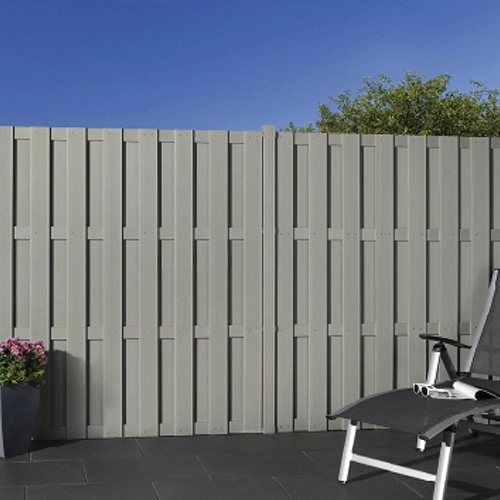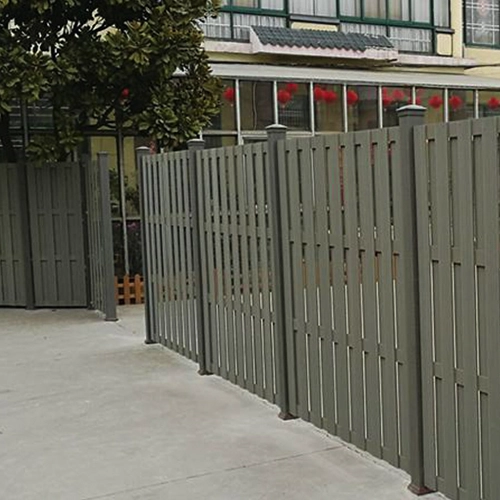When it comes to enhancing the aesthetics and functionality of your outdoor space, a well-designed fence plays a crucial role. Wood Plastic Composite (WPC) fences have emerged as a popular choice due to their blend of natural beauty, durability, and low maintenance. In this article, we will explore the benefits and features of WPC fences, along with their applications and considerations, helping you make an informed decision for your outdoor fencing needs.


Benefits and Features of WPC Fences
1. Durability
Weather Resistance: WPC fences are highly resistant to various weather conditions, including rain, snow, and UV rays. This ensures they maintain their appearance and structural integrity over time.
Pest Resistance: Unlike traditional wood fences, WPC fences are not susceptible to termite damage or rot, making them a long-lasting option.
2. Low Maintenance
Easy Cleaning: WPC fences require minimal maintenance. A simple wash with water and mild soap is sufficient to keep them looking new.
No Painting or Staining: The color and finish of WPC fences are built into the material, eliminating the need for periodic painting or staining.
3. Aesthetic Appeal
Natural Look: WPC fences mimic the appearance of natural wood, providing a warm and inviting look to any outdoor space.
Variety of Designs: Available in a range of colors, textures, and styles, WPC fences can complement various landscape designs and architectural styles.
4. Environmental Benefits
Sustainable Material: WPC is made from a combination of recycled wood fibers and plastic, making it an eco-friendly choice.
Reduced Waste: The manufacturing process of WPC utilizes recycled materials, contributing to waste reduction and environmental conservation.
Applications of WPC Fences
1. Residential Properties
Privacy Fencing: Ideal for creating private outdoor spaces in backyards and gardens, WPC fences provide an attractive barrier that enhances privacy.
Boundary Fencing: Defines property lines while adding aesthetic value to the home’s exterior.
2. Commercial Spaces
Security Fencing: Used in commercial properties to secure the perimeter and protect assets.
Decorative Fencing: Enhances the visual appeal of commercial landscapes, including office parks and retail centers.
3. Public Areas
Parks and Recreational Areas: Provides safe and attractive boundaries in parks, playgrounds, and other public spaces.
Community Gardens: Defines garden plots and pathways, contributing to an organized and appealing community space.


Considerations for Choosing WPC Fences
1. Cost
Initial Investment: While WPC fences may have a higher upfront cost compared to traditional wood fences, their long-term durability and low maintenance requirements can result in cost savings over time.
2. Installation
Professional vs. DIY: WPC fences are relatively easy to install, but professional installation ensures proper alignment and stability, especially for larger projects.
3. Design and Style
Compatibility: Choose a design that complements your home’s exterior and landscape. Consider factors such as color, texture, and height to ensure the fence meets your aesthetic and functional needs.
4. Local Regulations
Building Codes: Check local building codes and regulations before installing a WPC fence to ensure compliance with height restrictions and property line setbacks.
Conclusion
Wood Plastic Composite (WPC) fences offer a perfect blend of natural beauty, durability, and low maintenance, making them an excellent choice for enhancing the aesthetics and functionality of your outdoor space. Whether for residential, commercial, or public applications, WPC fences provide a long-lasting and eco-friendly solution. By considering factors such as cost, installation, design, and local regulations, you can make an informed decision that meets your specific fencing needs and enhances your outdoor environment.

